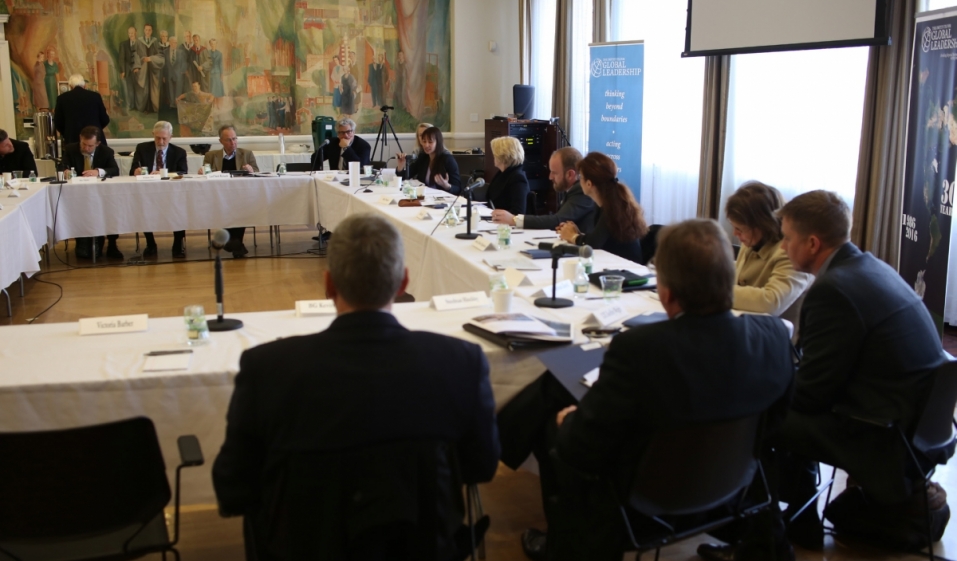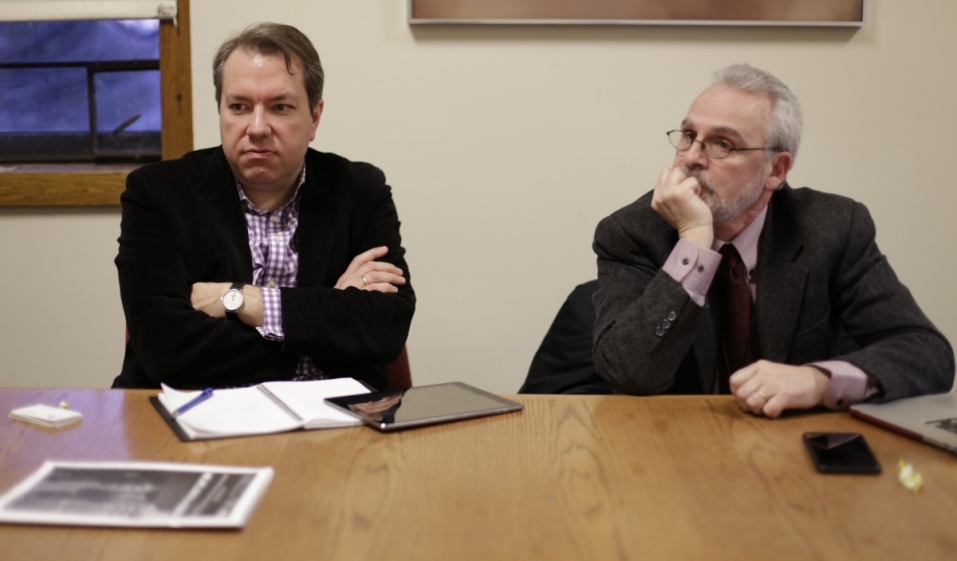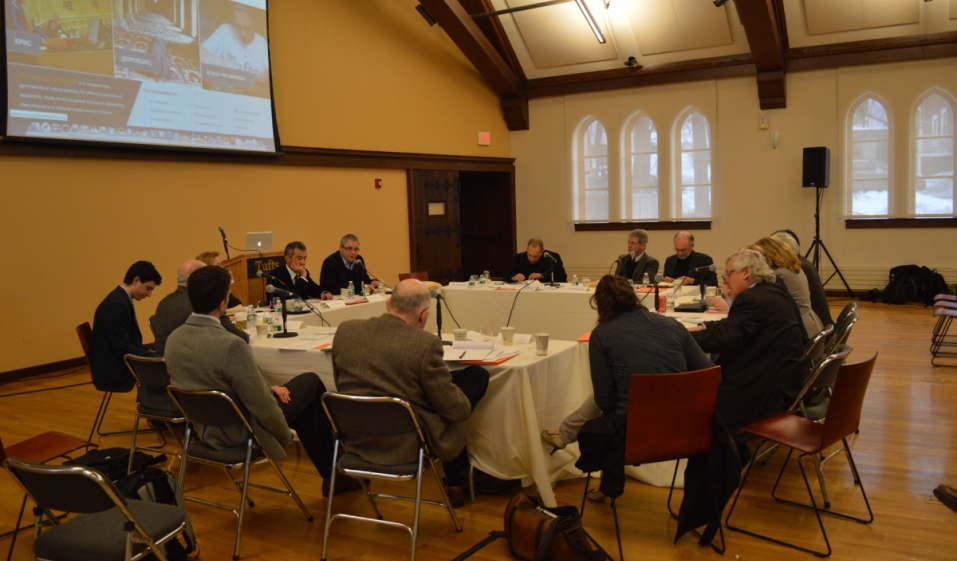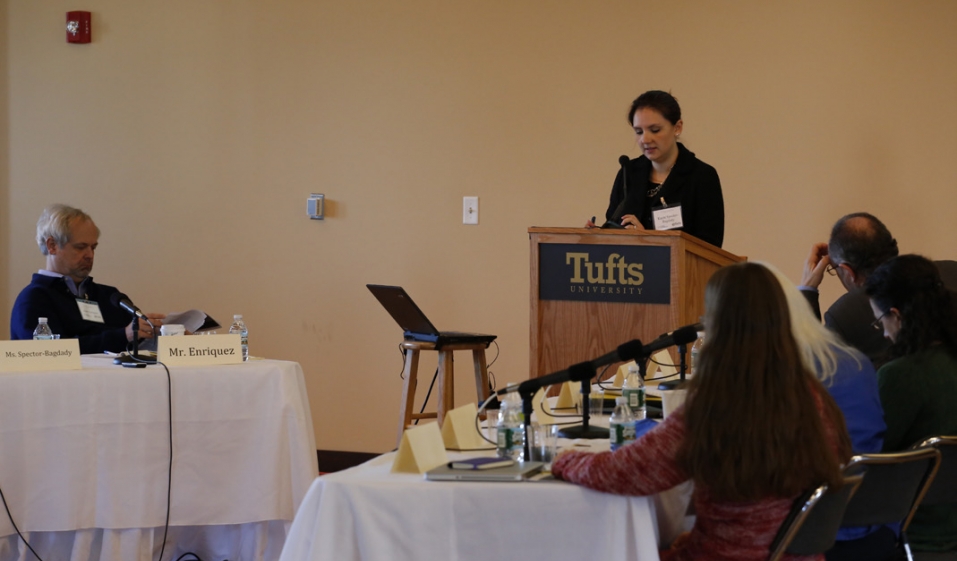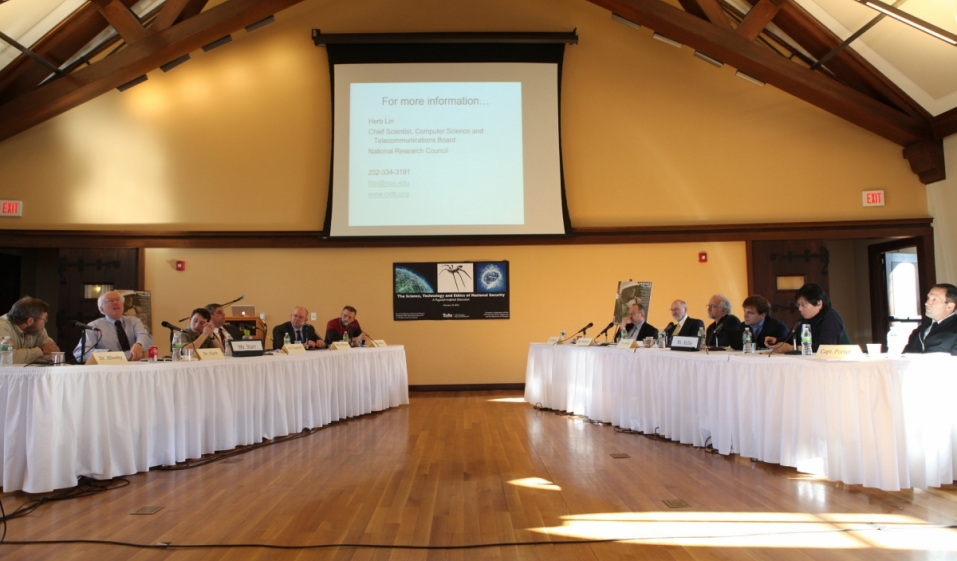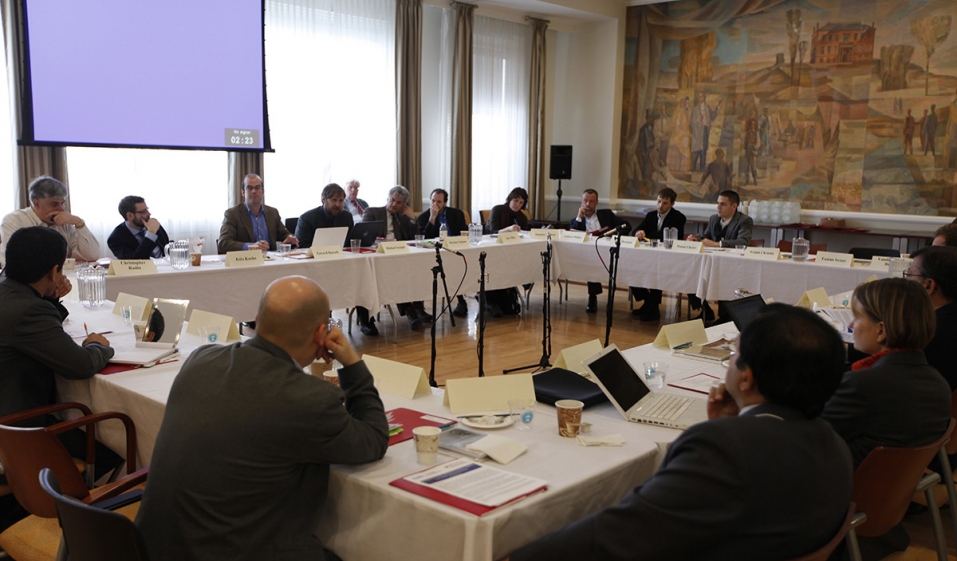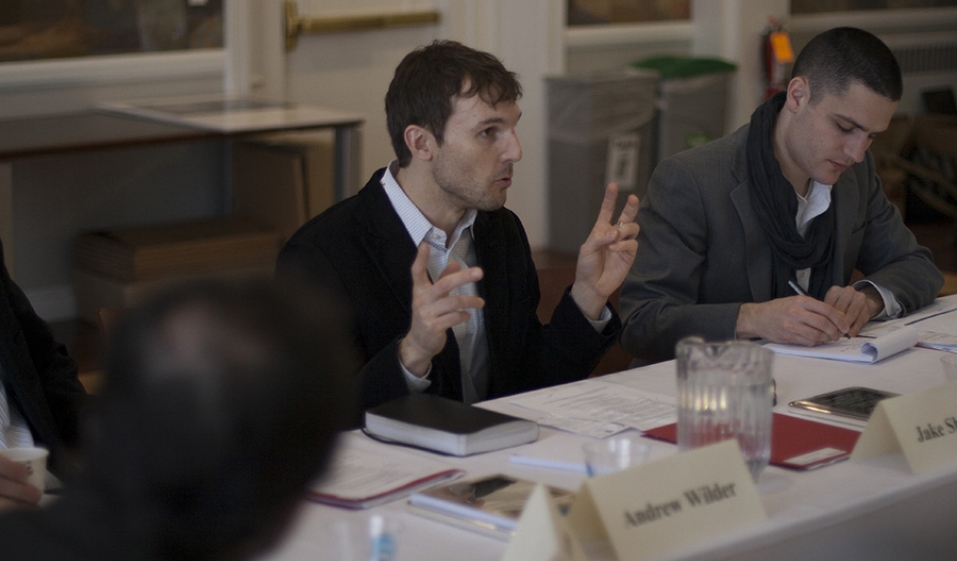Roger Molander, was one of the United State's most noted arms control strategists. He was a member of the National Security Council (NSC) staff at the White House (1974–1981), where his principal area of responsibility was strategic nuclear arms control. He was lauded by former National Security Adviser Zbigniew Brzezinsky as, "the expert on the NSC staff reporting to me on the complexities of [SALT II]. Without him, we would’t, I think, have been able to make the progress that we did."
After leaving the NSC Dr. Molander joined the RAND Corporation where his latest research focused on terrorism and the use of exercises to enable more effective decision-making on homeland security and counter terrorism strategy, policy, and operational issues. He had worked on the challenges presented to critical U.S. infrastructures by major hurricanes and the challenges to the Intelligence Community presented by a possible influenza pandemic.
A major component of his work was leading the application of RAND’s “Day After…” exercise methodology to these issues. This methodology, originally developed to explore the counter-nuclear proliferation problem, has more recently been applied to cyberspace warfare against critical U.S. infrastructures and to the impact of emerging facets of electronic commerce (such as e-cash, Internet banking, and Internet gambling) in the U.S. and global anti-money laundering strategy.
As the founder of Ground Zero, Dr. Molander was also one of our nation's most effective grassroots anti-proliferation activists. In 1980-81 he was a valued advisor to Sherman Teichman, the Founding Director of the Institute for Global Leadership (1985-2016), when Teichman created the "MX Missile Awareness Project." A consortium of Greater Boston university student study groups, it convened a symposium at MIT on the controversial MIRVed land-based missile that President Reagan had termed the "Peacekeeper." The day-long forum was broadcast in its entirety, city-wide, by WBUR/NPR, where Mr. Teichman was then the station's foreign policy analyst. Decades later, in 2011, Dr. Molander accepted Teichman's invitation to participate in the Institute's EPIIC symposium on "Our Nuclear Age." Roger sadly passed away not long after.
By serendipity, Roger's daughter Egan had married one of the Institute's alumni, Matthew Cammack. At the time of Roger's passing Matthew wrote Sherman, "Although his direct involvement with EPIIC was limited to presenting at the 2011 Symposium (Nuclear Age), he was duly impressed with the program's focus on engaging young people in a broad range of national and global issues, and especially touched by the intense passion and commitment displayed by those involved towards achieving this end. Roger was an incredible guy in so many ways, and his family is keenly interested in ensuring that any memorial donations from family and friends support an equally incredible mission."
With the support of the Molander family, Mr. Teichman decided to honor Roger by deliberately creating an Institute Pugwash-inspired chapter in his name that would reflect, and resonate, Roger's, and the Institute for Global Leadership's diverse security concerns.
For over thirty years, the Institute has considered and investigated the concept of security in the most encompassing manner possible, from traditional military strategy, to food security, from pandemics to the dilemmas of refugees and internally displaced peoples. Under MacArthur Foundation sponsorship in 1992, it created a seminal year pioneering the concept of environmental security: http://tiglarchives.org.s3.amazonaws.com/programs/archive/1992.html
For a full spectrum of the Institute's EPIIC's themes see: http://tiglarchives.org.s3.amazonaws.com/programs/archive.html
The programs described below speak to the Institute's exploration of the interface between science, technology, ethics, and international security. While international Pugwash has concentrated primarily on critical nuclear proliferation issues, the Tufts Pugwash inspired chapter was intentionally organized to include themes such as artificial intelligence, cyber, environment, genomics, health, terrorism, and so forth, perceived through the prism of their implications for global and human security. The Roger Molander chapter formally convened security-themed workshops from 2012 to Mr. Teichman's retirement in 2016.

